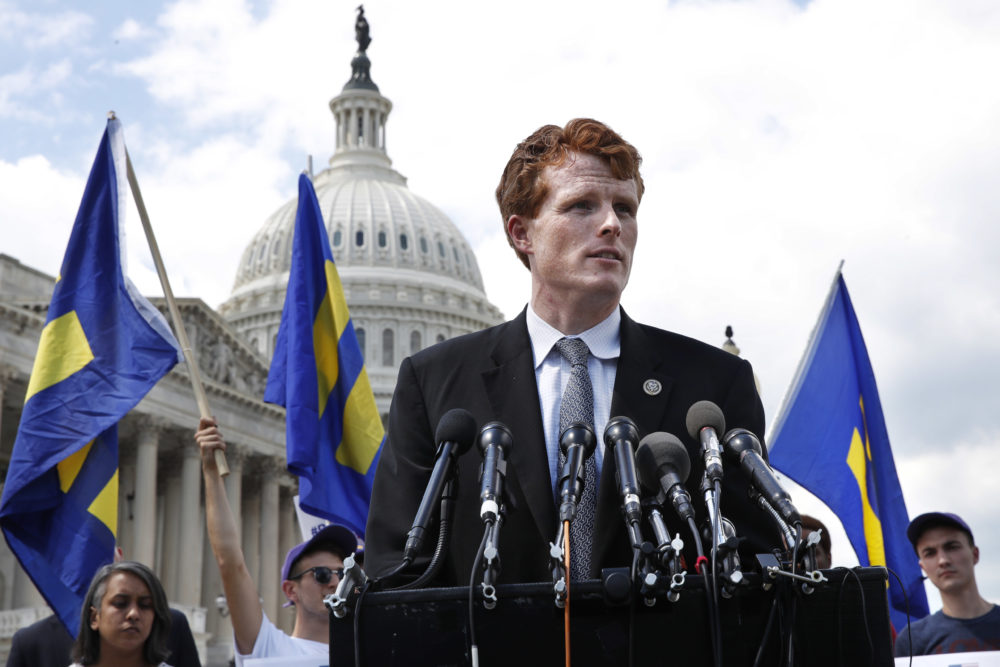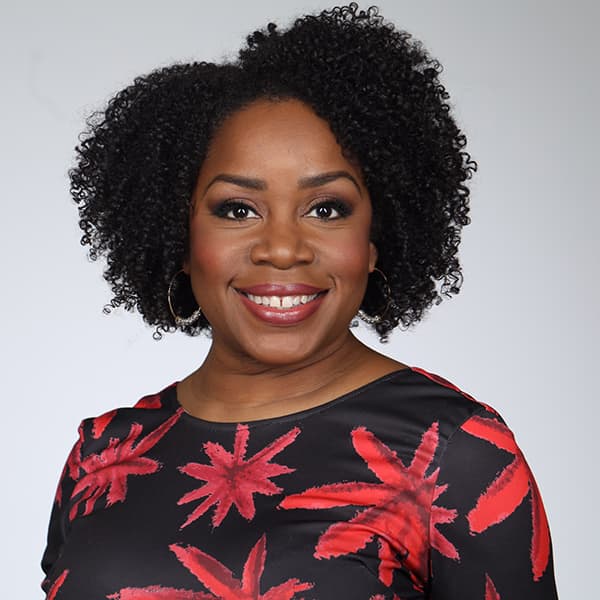Advertisement
Kennedy Wants Mueller To Connect The Legal Dots To Sway Lawmakers, Americans On Impeachment
Resume
With his prosecutor’s eye, U.S. Rep. Joe Kennedy III saw in the Mueller Report everything he needed to call for impeachment proceedings against President Trump — even as House Speaker Nancy Pelosi and more than half of his fellow Massachusetts delegation members have stopped short.
The Newton congressman, who was an assistant district attorney in the Cape and Islands and the Middlesex district attorneys’ offices before he was elected to Congress, said the report lays out in detail textbook examples of obstruction of justice by the president.
Now, he wants his colleagues in the House and the American people see that too — and he wants former Special Counsel Robert Mueller to walk them through it in that way when he testifies on Capitol Hill Wednesday.
“Respectfully ... I was a prosecutor, so I have some idea of the impact of what you’re reading" in the report, Kennedy told WBUR in his Washington congressional office just days before Mueller was set to testify before the House Judiciary and Intelligence committees. "If you don’t know what you’re reading, it is easy to miss.”
But for that to happen, Kennedy says, Mueller needs to connect those dots, showing step by step how the findings in the report meet the statutory elements of crimes. The report didn't quite do that. Instead, it laid out 10 instances of potentially obstructive acts by the president — many of which, Kennedy said, present “substantial evidence of a criminal act.”
“He lays that out. I’ve talked to Republican colleagues here. They agree,” Kennedy said. “You know why? Because it is literally the text, almost an exact quote, of what’s coming off the pages.”
Trump has repeatedly pushed back, telling a gathering at the conservative organization Turning Point USA Tuesday that Democrats "have no collusion.”
“They did a report, and there was no obstruction,” Trump said.
And getting Mueller’s testimony to play out like a television crime drama won’t be easy, legal experts say. For starters, Mueller said during a May press conference — his only statement about the report to date — that "any testimony from this office would not go beyond our report." The Justice Department also sent Mueller a letter saying that his testimony should be limited by claims of executive privilege.
And a congressional hearing, with limitations on each lawmaker’s time to ask questions, is very different forum than that of a trial courtroom, experts said.
“It’s a lot to expect from a congressional hearing with five-minute rounds,” said Andrew Wright, a former associate White House counsel who has trained congressional staff on how to run investigations.
Also, Mueller is not known for having a flair for the dramatic.
“I think [Mueller] very much wanted to avoid playing that kind of 'Perry Mason' role here because he didn’t view it as his role in this saga,” said Bradley P. Moss, a Washington-based national security attorney. “He viewed himself simply as being the investigator, and where necessary the prosecutor, to determine what actually happened.”
The rest, he said, is up to Congress.
Since there can be no indictment, the only solution is a political one, and so far just over a third of House Democrats — including Kennedy and fellow Massachusetts Reps. Jim McGovern, Seth Moulton and Ayanna Pressley — plus newly independent Michigan Rep. Justice Amash support launching impeachment proceedings. No Republicans are expressing public support for impeachment.
Still, Kennedy said he wants Mueller to explain exactly why he laid out evidence of obstruction by Trump in the report, without calling it a crime.
“I want to understand why it is that he was willing to put into words, in black and white on the paper, ‘there is substantial evidence to meet A, B and C,’ in multiple occasions, but yet would not take the next step to say there is substantial evidence that he committed a crime,” Kennedy said. “Because that actually is what he said.”
Moss agreed on that point, citing what he called particularly strong evidence in the report about Trump ordering then-White House counsel Don McGahn to deny to investigators that Trump instructed him to fire Mueller, as well as evidence Trump dangled the prospect of pardons to his former attorney, Michael Cohen, and former campaign chairman Paul Manafort, both of whom are now serving prison sentences, to encourage them to curtail their cooperation with investigators.
Without Mueller explicitly stating that he would have brought charges but for a Justice Department guidance memorandum prohibiting such action against a sitting president, those seeking impeachment lack a proverbial smoking gun.
But the hearing is still important for Americans to see, especially since few have read the report, former White House counsel Wright said.
“To me the most important thing is to present evidence of what happened, and then put that in context as to why that is a departure from important practices or a potential violation of law,” Wright said.
Moss agreed, saying the hearing will still be must-see television.
“People will take and absorb more of it if they see it on TV as opposed to on paper. It’s just the way we work these days,” Moss said. “We’ll see the movie, we won’t read the book.”
This segment aired on July 24, 2019.
